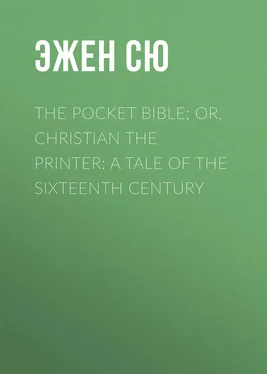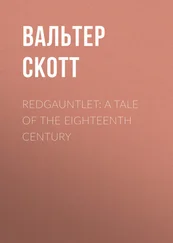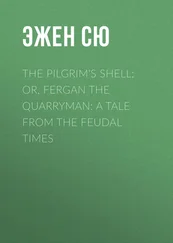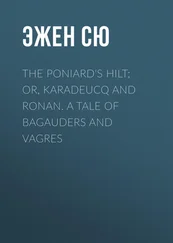Эжен Сю - The Pocket Bible; or, Christian the Printer - A Tale of the Sixteenth Century
Здесь есть возможность читать онлайн «Эжен Сю - The Pocket Bible; or, Christian the Printer - A Tale of the Sixteenth Century» — ознакомительный отрывок электронной книги совершенно бесплатно, а после прочтения отрывка купить полную версию. В некоторых случаях можно слушать аудио, скачать через торрент в формате fb2 и присутствует краткое содержание. Жанр: literature_19, foreign_antique, foreign_prose, на английском языке. Описание произведения, (предисловие) а так же отзывы посетителей доступны на портале библиотеки ЛибКат.
- Название:The Pocket Bible; or, Christian the Printer: A Tale of the Sixteenth Century
- Автор:
- Жанр:
- Год:неизвестен
- ISBN:нет данных
- Рейтинг книги:3 / 5. Голосов: 1
-
Избранное:Добавить в избранное
- Отзывы:
-
Ваша оценка:
- 60
- 1
- 2
- 3
- 4
- 5
The Pocket Bible; or, Christian the Printer: A Tale of the Sixteenth Century: краткое содержание, описание и аннотация
Предлагаем к чтению аннотацию, описание, краткое содержание или предисловие (зависит от того, что написал сам автор книги «The Pocket Bible; or, Christian the Printer: A Tale of the Sixteenth Century»). Если вы не нашли необходимую информацию о книге — напишите в комментариях, мы постараемся отыскать её.
The Pocket Bible; or, Christian the Printer: A Tale of the Sixteenth Century — читать онлайн ознакомительный отрывок
Ниже представлен текст книги, разбитый по страницам. Система сохранения места последней прочитанной страницы, позволяет с удобством читать онлайн бесплатно книгу «The Pocket Bible; or, Christian the Printer: A Tale of the Sixteenth Century», без необходимости каждый раз заново искать на чём Вы остановились. Поставьте закладку, и сможете в любой момент перейти на страницу, на которой закончили чтение.
Интервал:
Закладка:
With a heart, now as brimful of joy as it was of distress on the previous evening, the happy mother busied herself with preparing the evening meal. No less joyful than Bridget at the return of Hervé's tenderness, Hena was radiant with happiness, and the sentiment enhanced her beauty. Barely in her seventeenth year, lithesome and generously built, the young girl wore her golden-blonde hair braided in two strands coiled over her head and crowning her blooming cheeks. The gentleness of her features, that were of angelic beauty, would have inspired the divine Raphael Sanzio. White as a lily, she had a lily's chaste splendor; candor and kindness stood out clear in the azure of her eyes. Often did those eyes rest upon that naughty yet so dearly beloved brother, of whom the poor child had feared she was disliked. Seated beside him, and engaged at some needle-work, she now felt herself, as in former days, filled with sweet confidence in Hervé, while the latter, once more affectionate and jovial as ever before, entertained himself pleasantly with his sister. By a tacit accord, neither made any allusion to the recent and painful past, and chatted as familiarly as if their fraternal intimacy had never suffered the slightest jar. Despite his self-control and profound powers of dissimulation, Hervé was ill at ease; he felt the necessity of speaking, and sought distraction in the sound of words in order to escape the obsession of his secret thoughts. He rambled at haphazard from one subject to the other. Brother and sister were thus engaged as Bridget absented herself for a moment on the floor above in pursuit of some household duty.
"Hervé," the young girl was saying to her brother, thoughtfully, "your account interests me greatly. How old would you take that monk to be?"
"I could not tell; perhaps twenty-five."
"He had a face that was at once handsome, sad and benign, did he not? His beard is of a somewhat lighter hue than his auburn hair; his eyes are black, and he is very pale; he has a sympathetic countenance."
While thus chatting with her brother, Hena proceeded to sew and could not notice the expression of surprise that Hervé's face betrayed. His feelings notwithstanding, he answered:
"That is a very accurate description. One must have observed a person very attentively in order to preserve so life-like a picture of him. But what induces you to believe that the monk in question is the handsome auburn-haired monk, whose picture you have just sketched?"
"Why, did you not just tell me, dear brother, that you recently witnessed a touching action of which a monk was the author? Well, it struck me that probably he was the friar that I described. But proceed with the story."
"But who is that monk? Where did you see him? How did you happen to know him?" Hervé interrogated his sister in short, set words, inspired by an ill-suppressed agonizing feeling of jealousy. The naïve girl, however, mistaking the sentiment that prompted her brother's question, answered him merrily:
"Oh! Oh! Seigneur Hervé, you are very inquisitive. First finish your story; I shall tell you afterwards."
Affecting a pleasant tone, Hervé replied as he cast upon his sister a sharp and penetrating look: "Oh! Oh! Mademoiselle Hena, you twit me with being inquisitive, but, it seems to me, that you are no less so. Never mind, I shall accommodate you. Well, as I was saying, when passing this morning by the porch of St. Merry's Church, I saw a crowd gathered, and I inquired the reason. I was answered that a babe, six months old at the most, had been left over night at the portal of the church."
"Poor little creature!"
"At that moment a young monk parted the crowd, took up the child in his arms, and with tears in his eyes and his face marked with touching compassion, he warmed with his breath the numb hands of the poor little waif, wrapped the baby carefully in one of the long sleeves of his robe, and disappeared as happy as if he carried away a treasure. The crowd applauded, and I heard some people around me say that the monk belonged to the Order of the Augustinians and was called Brother St. Ernest-Martyr."
"Why 'Martyr' – and he so charitable?"
"You do not seem to know, sister, that when taking orders a monk renounces his family names and assumes the name of some saint – such as St. Peter-in-bonds, or St. Sebastian-pierced-with-arrows, or St. Lawrence-on-the-gridiron, or St. Anthony-with-the-pig – "
"Oh, what mournful names! They make one shudder. But the last one is really grotesque."
"Well," proceeded Hervé, without detaching his prying eyes from Hena, "Brother St. Ernest-Martyr was hastily walking away with his precious burden when I heard someone remark:
"'I am quite sure the good monk will take the poor little one to Mary La Catelle' – "
"I thought so!" exclaimed Hena ingenuously; "I knew it was he; it is my monk!"
"How, your monk?" asked Bridget smiling, her heart dilating with joy as she descended the stairs and saw her son and daughter engaged in cordial conversation as was their former wont. "Of what monk are you talking, Hena, with so much unction?"
"Do you not know, mother, La Catelle and her school? Do you remember that charming woman?"
"Certainly, I do. I remember the young widow Mary La Catelle. The school that she founded for poor children is a work of touching charity, which, however, also owes a good deal to John Dubourg, the linen draper of St. Denis Street, and to another rich bourgeois, Monsieur Laforge. They both generously sustain La Catelle and her sister Martha, the wife of Poille, the architect, who shares with her the maternal cares that she bestows upon poor orphans whom she takes up in her house – a place which has justly earned the name of 'the house of God'."
"Do you remember, mother," Hena proceeded with her reminiscences, "that when we went to the house of La Catelle, it happened to be school hour?"
"Yes, an Augustinian monk was instructing a group of children who stood around him or sat at his feet, and some were seated on his knees."
"Well mother, I listened to the monk as he was explaining to the children the parable of: 'Wicked are they who live on the milk of a sheep, who clothe themselves in her fleece, and yet leave the poor beast without pasture.' He uttered upon that subject words imprinted with such sweet and tender charity, and yet so easy for the intelligence of children to grasp, that tears came to my eyes."
"And I shared your sister's emotion, Hervé," replied Bridget, addressing her son, who, silent and absorbed in his own thoughts, had dropped out of the conversation. "You can not imagine with what charming benignity the young monk instructed those little ones; he measured his words to their intelligence, in order to indoctrinate them with the simple and pure evangelical morality. Mary La Catelle assured us that his knowledge was no less than his virtue."
Two raps at the street door from without interrupted the conversation.
"At last!" said Bridget to Hervé. "This is surely your father. The streets are not quite safe at night. I prefer to see him indoors. I hardly think we shall see my brother this evening. The hour for supper is long gone by," observed Bridget, stepping towards her husband, to whom Hervé had opened the house door.
Christian came in accompanied with the unknown personage, a young man of, however, a striking countenance by reason of its expression of deliberate firmness. His black eyes, instinct with intelligence and fire, were set so close that they imparted a singular character to his pale and austere visage. At the sight of the unexpected visitor Bridget made a gesture of surprise.
"Dear wife," said Christian, "I have brought Monsieur John along for supper. He is an old friend whom I accidentally met to-day."
"He is welcome to our house," answered Bridget, while the two children looked at the stranger with curiosity. As was her custom, Hena embraced her father affectionately; but Hervé, looking at him with a timid and repentant eye, seemed doubtful whether to follow his sister's example. The artisan opened his arms to his son and whispered in his ear as he pressed him to his heart:
Читать дальшеИнтервал:
Закладка:
Похожие книги на «The Pocket Bible; or, Christian the Printer: A Tale of the Sixteenth Century»
Представляем Вашему вниманию похожие книги на «The Pocket Bible; or, Christian the Printer: A Tale of the Sixteenth Century» списком для выбора. Мы отобрали схожую по названию и смыслу литературу в надежде предоставить читателям больше вариантов отыскать новые, интересные, ещё непрочитанные произведения.
Обсуждение, отзывы о книге «The Pocket Bible; or, Christian the Printer: A Tale of the Sixteenth Century» и просто собственные мнения читателей. Оставьте ваши комментарии, напишите, что Вы думаете о произведении, его смысле или главных героях. Укажите что конкретно понравилось, а что нет, и почему Вы так считаете.












